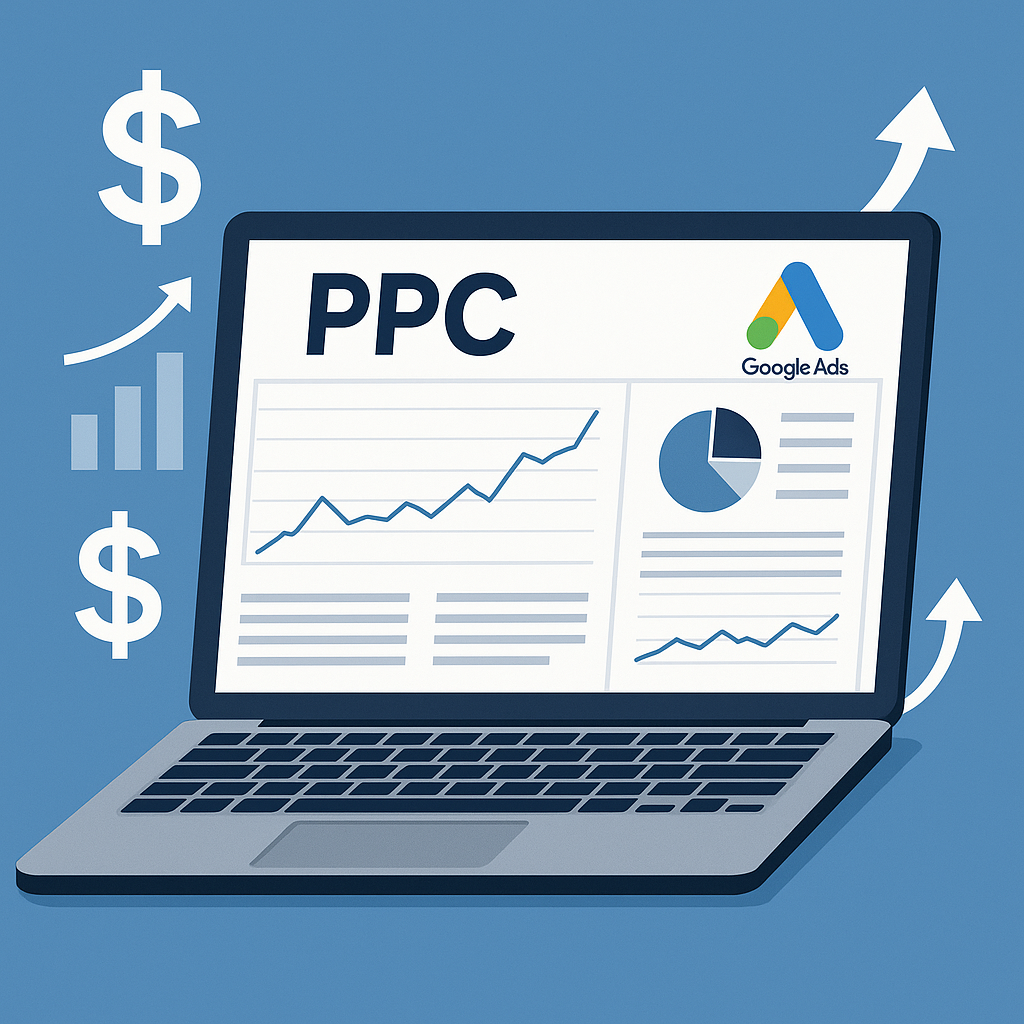



In the vast world of digital marketing, few tools offer the immediate results and precision targeting that pay-per-click (PPC) advertising delivers. Whether you're a small business looking to gain local customers or a large corporation expanding your online presence, understanding PPC is essential to stretch your marketing budget and maximize returns. This blog will walk you through the essentials of PPC, how it works, why it matters, and key strategies to help you succeed.
PPC is an online advertising model where advertisers pay a fee each time someone clicks on their ad. Instead of earning visits organically through SEO, you essentially buy visits to your site. The most common PPC platforms are Google Ads, Bing Ads, and social media platforms like Facebook, Instagram, LinkedIn, and Twitter.
When you set up a PPC campaign, you bid on specific keywords or audience segments. If you win the bid (based on factors like bid amount, ad relevance, and quality score), your ad appears in the sponsored section of search results or within user feeds. You only pay when someone clicks on your ad, making it a highly trackable and budget-controlled form of marketing.
Instant Visibility: Unlike SEO, which can take months to show results, PPC can get your brand in front of potential customers almost immediately.
Targeted Reach: PPC allows precise targeting based on location, demographics, interests, device types, and even user behavior.
Budget Control: Set daily or campaign-level budgets to prevent overspending. You’re in full control.
Measurable Results: Every click, impression, and conversion can be tracked, offering detailed insights into ROI.
Scalability: Once you find what works, you can scale your campaigns up for more traffic and leads.
Clear Goals: Define what success looks like. Are you aiming for sales, leads, app installs, or brand awareness?
Keyword Research: Identify the right keywords with a balance of high intent, decent search volume, and manageable competition. Use tools like Google Keyword Planner or SEMrush.
Compelling Ad Copy: Your headline and description must grab attention, communicate value, and include a strong call-to-action (CTA).
Landing Page Optimization: The user experience doesn’t stop at the click. Ensure your landing pages are relevant, fast-loading, mobile-friendly, and optimized for conversions.
Bidding Strategy: Choose between manual bidding, automated bidding, or enhanced CPC, depending on your goals and experience level.
Ad Extensions: Add extra information like sitelinks, callouts, and structured snippets to enhance your ad’s visibility and click-through rates.
✅ Start Small, Scale Gradually Avoid blowing your budget upfront. Start with smaller campaigns, test different variables, and scale up once you identify top performers.
✅ Use Negative Keywords Negative keywords prevent your ads from showing on irrelevant searches, saving budget and improving quality score.
✅ A/B Testing Continuously test different ad copies, headlines, images, and landing pages to find what resonates best with your audience.
✅ Focus on Quality Score Google assigns a Quality Score to your ads based on relevance, expected CTR, and landing page experience. Higher scores mean lower costs and better ad positions.
✅ Monitor Competitors Keep an eye on what your competitors are doing using tools like SpyFu or iSpionage. Understand their strategies and identify gaps or opportunities.
✅ Leverage Remarketing Retarget users who’ve already interacted with your site but didn’t convert. Remarketing ads often have higher conversion rates because they target warm leads.
Ignoring Mobile Users: With mobile traffic dominating, ensure your ads and landing pages are mobile-optimized.
Focusing Only on Clicks, Not Conversions: High traffic means little if it doesn’t convert. Always align campaigns with your ultimate goals.
Setting and Forgetting Campaigns: PPC requires constant monitoring. Regularly check performance, adjust bids, refresh ad copy, and pause underperforming ads.
Poor Audience Targeting: Broad targeting wastes budget. Use demographic, geographic, and behavioral filters to refine your reach.
Click-Through Rate (CTR): Measures how often people click your ad after seeing it.
Conversion Rate: Percentage of visitors who complete a desired action (purchase, sign-up, etc.).
Cost Per Click (CPC): How much you pay, on average, for each click.
Cost Per Acquisition (CPA): The average cost of acquiring a customer or lead.
Return on Ad Spend (ROAS): Revenue generated for every dollar spent on ads.
Use Google Ads reports, Google Analytics, and conversion tracking tools to measure these metrics and optimize your campaigns.
AI and Automation: Smart Bidding, automated ad creation, and dynamic search ads use machine learning to improve performance.
Voice Search Integration: Optimizing campaigns for voice queries as voice assistant usage grows.
Visual and Video Ads: Platforms like YouTube and Instagram Reels offer PPC opportunities beyond text-based ads.
Privacy and Cookie Changes: Expect a shift toward first-party data strategies as third-party cookies phase out.
PPC advertising is one of the fastest ways to drive targeted traffic, generate leads, and boost sales — but it’s not a magic bullet. Success requires continuous learning, optimization, and a data-driven approach. Whether you’re managing PPC in-house or partnering with an agency, staying informed about trends and best practices will help you maximize ROI and stay competitive in the ever-evolving digital landscape.
If you’d like, I can also create a checklist, setup guide, or template to help you launch your first PPC campaign successfully!
ⓒCopyright 2025 UncleADS . All rights reserved